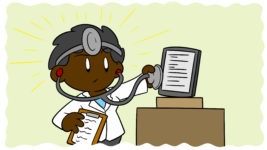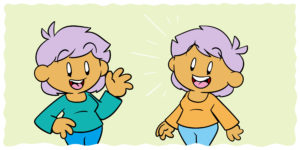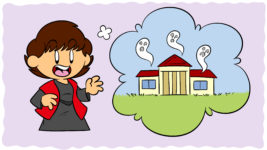I often get asked how I go about editing a manuscript. Where do I start? How do I know what needs more focus or improvement?
These are all good questions that need to be answered.
An editor needs to adopt many different roles all at once when editing a book. By being multifaceted and filling these different roles, your editor is able to draw on a mixture of knowledge and experience that will help you shape your book into the best version of itself.
So, let’s have a look at the different roles of an editor and why they’re so darn important.
The writer
This may sound quite peculiar. Why would an editor need to be a writer?
One of the most basic and important rules of editing is: DO NOT distort the writer’s voice.
So when your editor is reading your words and possibly offering alternative phrases, he or she will attempt to do so in language that is in keeping with what is already there.
When I write, I favor more lyrical, possibly old-fashioned prose. It would first of all disrespect the tone of your, for example, futuristic science fiction novel if I removed the protagonist’s expletive-ridden rant and offered the suggestion of “He was most displeased”.
Second of all, it would look ridiculous.
If an editor is to offer an alternative way of expressing something it is because they’re concerned that what you have written doesn’t necessarily convey your intentions, not because “my way is better”.
The reader
By being an avid reader, your editor is in the best position to catch plot holes and question a character’s development.
If you think about the last book that had you completely in its grasp, you inhabited that world, imagined the scenery and the people in your mind vividly. Perhaps the plot took you by surprise, meandered on a course you weren’t expecting, but it still flowed and you were able to visualize the characters clearly as the writer had breathed life into them.
But, if part of the plot simply didn’t make sense, or a character seemed inconsequential and dull, you would notice. It would’ve affected your overall opinion of the story.
And that’s why it’s vital that your editor is also an avid reader. An editor must look at the piece and really think about its effect on its intended audience.
The poet
The poet is a romantic sort and has a deep affection for the dexterity of the English language, the images words can create.
Editors who are also poets like reading the writing out loud and listening to the sound of it, the lyricism. Your editor may suggest moving one or two words around, the sentence suddenly flowing just right; or your editor may suggest that the descriptive passage needs further development or tightening because it wasn’t as powerful as it could be.
Another very important task that your editor faces is finding sense and meaning in the sentences. After all, if a poet, a master of the metaphor and the simile, cannot grasp the intentions of your words, chances are your meaning has been lost.
The English language teacher
This role is given free reign in the proofread stage. Out comes the red pen, the dictionary, the thesaurus and all the books on rules of grammar.
I’m sure the presence of the teacher isn’t the least bit surprising to you. Checking the language for grammar and spelling is one of the most important tasks for an editor. As mentioned in A quick note on the different types of editing, in a developmental edit, spelling and grammar are not the main focus, but most editors will pick up obvious mistakes anyway.
It’s ingrained; we can’t seem to help ourselves!
The questioning child
Your editor’s role as a questioning child emerges when facts are presented, asking questions about the new information—“What time did World War II start?”—perhaps wandering off to find the answers, perhaps asking you to give more detail.
Fact checking, and the question of whether or not an editor should do so, is a hazy area. Some do, some don’t. However, any editor worth their salt will be checking basic facts if they are concerned and with Google, there is no excuse these days. You may also be fortunate in that your editor has some knowledge about your chosen subject. For instance, if your action scene vividly described Tom, Dick and Fat Sam hastily scrambling into the Piper Cub and zooming off into the sky, I would add a comment, “Piper Cub is a two-seater. No way would Fat Sam fit, even if strapped to the wings. Cessna 172?”
However, it’s more likely you’ll be writing about a subject very well known to you, but new and enlightening to your editor. If you were to write a drama focused on soccer and were waxing lyrical about the offside rule, it would elicit the editorial version of ‘nodding and smiling’ from me—I would check the sentence for spelling, grammar and basic sense, but I’m going to take you at your word that what you have written is correct. Otherwise, I haven’t the time to research the offside rule and watch a thousand slow-motion replays to fully understand it.
The important point to note: the onus is on the writer. Check your facts. Double check. Triple check! It is your name on the book. If you are hoping to write a best seller that will not be ripped to shreds by experts, make sure you get it right.
The computer geek
There are several functions in Word that us editors look on with great fondness and will talk about at length with one and other. Geeky, right?
The Track Changes function tops the list of favorites and is an editor’s dream. Gone are the days of scrawling on the margins of hard copies; gone are the days of writers scratching their heads at the illegible handwriting. You may well be wincing at the mention of Track Changes if you’ve been in receipt of a marked-up manuscript. Comfort yourself with the knowledge that you can ‘reject change’.
Other functions that have made us editors smile are Copy/Cut and Paste, Search and Replace, Format Painter and Comment Boxes. And of course, I’m sure the ‘Undo’ button has had all of us sighing with relief at various points in the past.
So, now you can see why your editor should be multifaceted. If you combine all of these roles, you will be left with an effective editor, one focused on helping you get your writing in the best shape possible.






2 thoughts on “Why Your Editor Should Be Multifaceted”
Interesting piece, editor Frances… so you are a pilot?! 😉
Thank you! I am not a pilot, but I am lucky enough to come from a ‘flying family’ – it’s in the genes whether I have the licence or not!